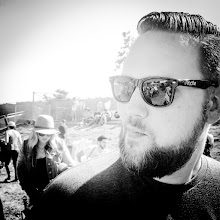In the past few days, I've been re-visiting JD Salinger's Nine Stories. It's been a while, and I've been so inundated with Raymond Carver's short stories, it seems like a long time since I've read anyone else's short fiction. Re-reading the first few stories in the collection made me appreciate just how much the short story writer relies on suspense. Even in stories that are generally devoid of mystery, there still has to be a certain something lurking beneath the surface. Carver often referred to it as "menace" though I think you could really substitute terms like mystery or suspense just as easily. Basically, there should be some unspoken, undefined conflict that keeps the reader interested in what is will happen next. The beauty of short stories is that it never really has to surface or be revealed what happens with that threat or menace or suspense.
Now, what I just said there is no news, it's no great revelation. Really, it's kind of commonplace knowledge to your average lit student. However, I recently made a connection in listening to some music while reading short fiction. That connection: shoegaze is just like a short story. For those of you unfamiliar with the genre, shoegaze is usually melancholy music that relies on long-ish songs that are constantly building towards a musical climax. My Bloody Valentine fits loosely into the genre, though bands like Mogwai or Explosions in the Sky are probably better fits, at least for my needs in this post. So I came to the realization that you spend time in a short story, like in a shoegaze song, waiting to see what happens next. Most songs you just kind of enjoy them, listen to the music, sometimes sing along with the words, all that jazz. But in shoegaze, you are actively waiting, hoping for that moment when it all hits, and like a good short story, when that moment comes, it hits you like a ton of bricks. I am interested in exactly how it is that musicians are able to achieve this; there's so much more than just hitting a distortion pedal or having the drummer suddenly enter in to the mix at a much higher volume. I think that having a song really hit like that can add a great extra dimension to music, and it shouldn't be limited to shoegaze. Granted, classical composer have been using songwriting methods like this for hundreds of years, but it hasn't really transferred well to the medium of pop music and I'm not sure why. Do listeners lack patience? Yes, some shoegaze bands take just a bit too long to get to the point, but writers can do the same. Filmmakers too, as far as that is concerned. I wonder how much of it has to do with our modern "I want it now" society. The earliest pop songs to hit the radio were limited by the constructs of the record: to fit on a 45, they had to be a maximum length which wasn't much more than about three minutes I believe.
Poe famously described short stories as pieces of fiction that are meant to be read in their entirety in one sitting. What happens with our modern times when no one can sit still anymore?
Subscribe to:
Post Comments (Atom)

No comments:
Post a Comment